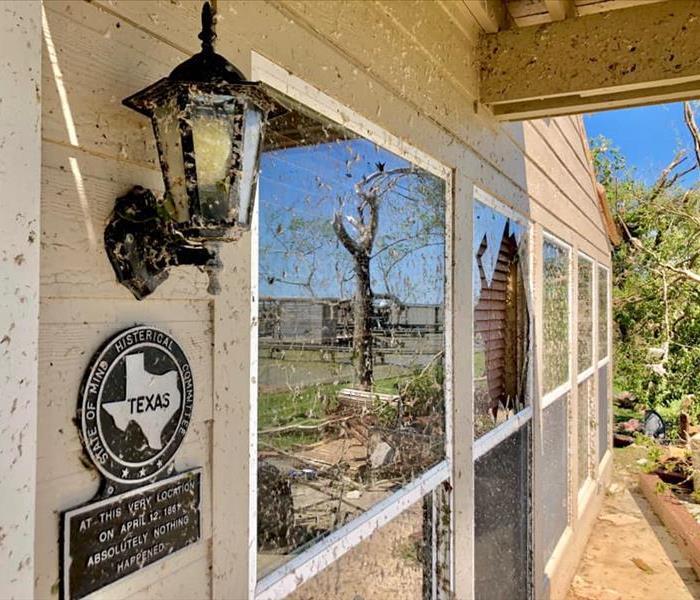Protecting the Windows of your Home during a Storm
6/4/2020 (Permalink)
Some homes in Longview, Texas may be especially susceptible to high winds. However, you don’t have to sacrifice style and comfort to prevent windblown glass and exposure to the elements. Examine the following shutter designs to choose the best one for your home.
1. Traditional Designs
When many people picture shutters, they imagine a wooden frame on either side of the window with rows of slats. This is called the colonial design, and it is so common that many homes use a non-functional version as a decorative window accent. However, depending on the conditions in your area, the colonial shutter variety might be a solid choice for storm protection as well. Another traditional design called the Bahama shutter has vertical hinges, allowing it to open into a small awning to provide shade in warmer climates.
2. Modern Equipment
Other homeowners choose a sleek and compact look to keep their shutters out of the way when no high winds are present. Accordion and rolling shutters are made of light metals or polycarbonate, giving them a high degree of strength and flexibility. This enables the window cover to fold away or roll up when not in use. These designs are typically more expensive than the traditional varieties, and can even be electrically-powered for added convenience.
3. Temporary Protection
Storm panels and plywood are another window damage prevention method for those in high-risk locations. These storm shutters are not intended for permanent installation, and properly speaking, they do not “shut” over the window at all. Storm panels are corrugated metal surfaces that are simply affixed to the window frame with screws. Plywood is an even cheaper solution and can be implemented faster, but may not be as secure.
Whatever shutter option you choose, remember that protecting your home against high winds is the first step toward avoiding interior flooding. Have the contact information of a qualified water damage restoration service ready if you anticipate severe weather conditions.





 24/7 Emergency Service
24/7 Emergency Service
